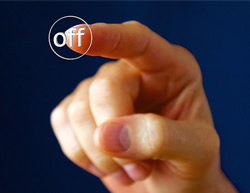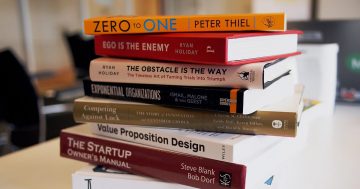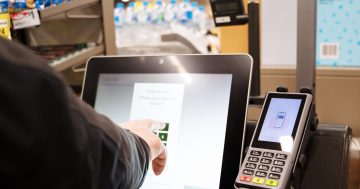David Imel* says his phone was beginning to control his life, so he decided to try a social media detox.
 I realise this article is cliched as hell.
I realise this article is cliched as hell.
It’s been written hundreds if not thousands of times and, most likely, all come to the same conclusion: we need to spend less time on our phones.
The idea of social media detox has been floating around for years, but recently, I started to feel like I really needed to try it.
It feels like an itch I need to scratch and I really, really hate it.
A couple of months ago, I was taking a bath on a quiet Saturday night.
I’d been there for two hours.
Normally, this would seem like a good thing.
I was taking some time for myself to relax and not worry about work and personal issues.
It was just me and the water, right?
Except I wasn’t really relaxing.
I was on Twitter, and Instagram, and Reddit.
And suddenly, I saw myself from a bird’s-eye view, and I felt gross.
Our constant need for entertainment, engagement, and information stems from our access to information.
When I was a kid, I could only explore the internet when I was at home at our computer, when my mum wasn’t on the phone.
And I became obsessed with that computer.
But more than anything, I became obsessed with information and the constant stimulation it represented.
So, when smartphones first emerged, it was natural that I wanted access to this information in more places.
And it was fine for a while.
But then social media took over the internet, and subsequently, our attention.
Sitting in the bath that night, I thought about all the things I could be doing if I wasn’t mindlessly scrolling social media.
This isn’t a story about how I could have been more productive without these apps.
There is always time for things if you want them enough.
This is about my personal fight for my attention, and the quite literal detox I felt when I tried to get it back.
So, I stopped using social media for nine days and travelled around Japan using just maps.
Here’s how that went.
Unexpectedly, my first day felt surprisingly … fine.
I was focused on finding a camera I’d come to Japan specifically to get.
And that’s what I did.
Which is a form of stimulation, to be fair.
That’s probably why the next few days were much more difficult.
So difficult, that I posted photos of my camera on Twitter, using the web browser on my phone.
I couldn’t help it.
The mornings felt significantly different than before.
Normally, I wake up with a slew of notifications, and I spend at least an hour checking them all.
But I deleted them.
This time, I’d glance at my phone and see nothing.
And this was equal parts freeing and stressful.
Notifications have created a sense of urgency in my life.
Everything feels important.
Someone liked my Twitter post?
I have a new Instagram follower?
Surely these things need to be addressed!
I felt anxious.
And I fought that feeling for a few days.
It took four days to feel 95 per cent okay with being totally offline.
I had to continuously remind myself that I was fine.
No one will actually notice if I’m not tweeting every day.
I can miss some Slack messages.
I filled this time by trying to be present in what I was doing.
I was attentive to my surroundings and tried to focus entirely on what was in front of me.
The days passed slowly at first but eventually sped up as I became more comfortable leaving my phone in my pocket.
It was only on the fifth day that I felt completely relaxed.
Screen time on my phone completely dropped off.
I did catch myself daydreaming a lot — probably my brain compensating for the lack of external stimulation.
But daydreaming doesn’t make me feel stressed.
This is a continuous thought process, not stuttered hits of dopamine.
And that feels better.
It feels more neutral.
I fully enjoyed the remaining four days offline.
I went on multiple multi-hour train rides and felt great.
I went on hikes and sat by lakes and I felt good.
There was no urgency.
There was no worry about what might be happening around me.
I was less connected than I’d been in the past 10 years.
And I loved that.
When I got home, I felt much more relaxed than when I’d left, but I reinstalled those apps pretty much immediately.
I didn’t feel like I needed to.
It just felt I was just getting back to real life.
But slowly, that addiction crept back in.
It probably took two days for me to fall back into my cadence of anxiously refreshing these apps.
Which I didn’t really realise until a week or so later, when I found myself doing it again, in the bathtub.
And I had the same bird’s-eye realisation I had before.
I don’t think that smartphones are inherently bad.
If you can control your phone instead of letting it control you, these are invaluable tools.
But apps weren’t designed to be used in moderation, they were designed to be addictive.
And I’ve fallen victim.
The only solution I can find to this problem is working on how I consume these apps.
If you can control how you interact with them, they can bring real value to your life.
Otherwise, it’s far too easy to let them mindlessly eat your life away.
Try to take some time off and see how you feel.
It will probably be hard, but I can guarantee you won’t regret it.
* David Imel is a senior reporter and producer for Android Authority. He tweets at @DurvidImel.
This article first appeared at www.androidauthority.com.











